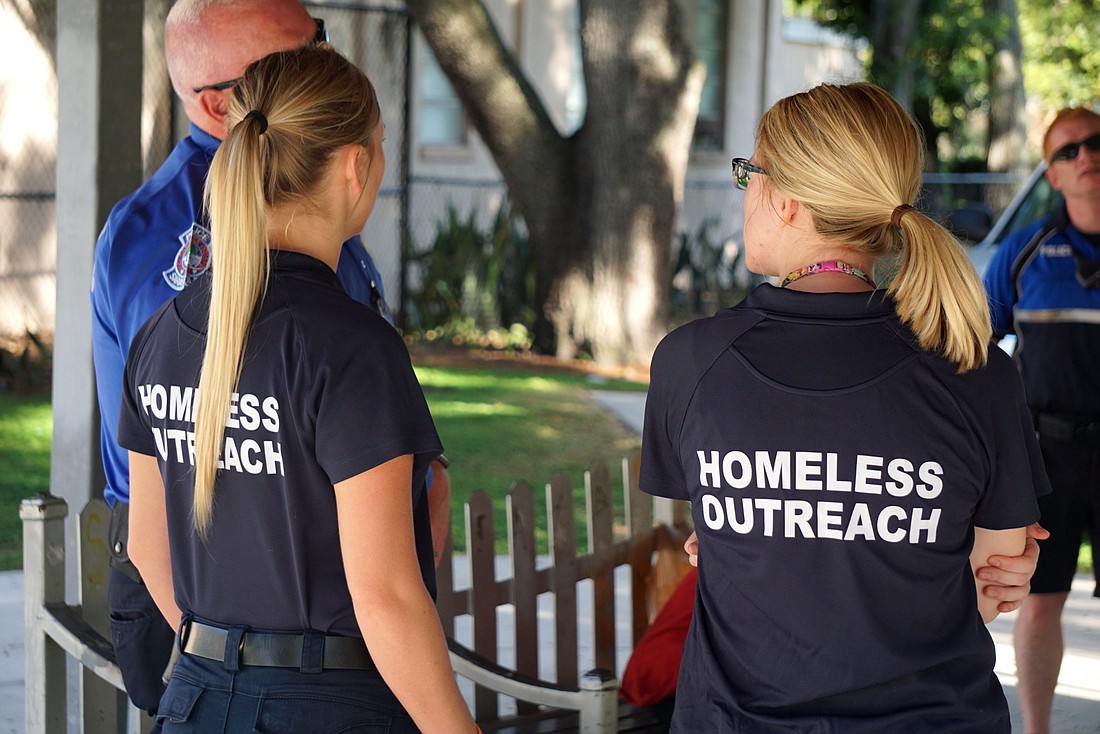- November 28, 2024
-
-
Loading

Loading

With a statewide moratorium on evictions scheduled to expire Saturday, those involved in a regional effort to reduce homelessness are preparing for a spike in demand for their services.
That spike might not take place Aug. 1, when the emergency measure prohibiting evictions is slated to expire. Gov. Ron DeSantis has twice extended the eviction moratorium, part of the ongoing statewide response to the effects of COVID-19.
But because the coronavirus pandemic has already complicated the task of addressing homelessness, there is concern that the eventual resumption of evictions will have seismic implications for those in precarious housing situations and stakeholders working on the issue.
“There is a lot of anxiety around when this eviction moratorium expires, as to: What is the demand going to be?” said Wayne Applebee, senior manager of Sarasota County human services. “A lot of folks within the system are very fearful of a tsunami-type effect that will hit homeless prevention and homelessness.”
The cause for concern is not unique to Sarasota: COVID-19 led to historic levels of unemployment across the country. Service providers believe that the eviction moratorium is the only thing keeping many people secure in their housing following a loss of income. Once that is no longer in place, homelessness professionals believe the need for housing assistance and other services will rise significantly.
Despite the severity of the challenge, there’s a sense of optimism among those working on addressing homelessness. Chris Johnson is the CEO of the Suncoast Partnership to End Homelessness, designated as the lead agency in the network of homelessness service providers that comprise the Sarasota-Manatee Continuum of Care. Johnson explained that the response to COVID-19 has involved an infusion of funds through programs including the federal coronavirus relief bill to support local governments and agencies.
As those groups prepare strategies to address the needs of both individuals experiencing homelessness and those at risk of becoming homeless, Johnson has identified another priority. With more money coming into the system, he wants to make sure there is a cohesive strategy for allocating those funds.
He called the availability of federal and state funds an unprecedented opportunity. He worried the region would not be able to capitalize if individual stakeholders are making decisions in silos.
“I would just love to see everyone in the same room at the same time,” Johnson said. “So much comes out of that collaborative work.”
Five years ago, the idea of getting Sarasota officials aligned on homelessness might have seemed far-fetched.
Once the subject of contentious public meetings between elected officials, Sarasota County and city staff members now say the local governments have a productive working relationship when it comes to homelessness coordination. Applebee credited that in part to officials embracing the Continuum of Care model in 2017, ending a prolonged public debate over the creation of a large shelter and creating a shared set of principles guiding regional response.
Those principles include a focus on outreach to the homeless population, prevention for those at risk of becoming homeless and strategies to house people without a home. Applebee said the county has become much more effective at keeping people housed in the past few years. Before adopting this model, he estimated that 33% of people the county moved into housing remained housed a year later. Today, he said that figure is 75%.
Those involved with the work say there are more numbers demonstrating the system’s success. According to the annual point-in-time count for Sarasota and Manatee counties, the number of individuals experiencing homelessness has fallen from 1,448 in 2017 to 1,044 in 2020. The number of households experiencing homelessness has decreased 28.9% since 2016.
The gains have been less pronounced the past two years than they were in 2018, a decrease of 57 individuals in 2019 and 91 individuals in 2020. Applebee said trending toward a plateau isn’t unexpected, adding that it highlighted the need to continue to allocate resources toward homelessness and refine strategies.
“We knew creating the system could have an immediate impact,” he said. “Sustaining that level of immediate correction is tough.”
Those involved in homelessness services mentioned a variety of strategies they were interested in pursuing. Applebee pointed to the County Commission’s March decision to move toward establishing an emergency shelter in south Sarasota County. Applebee also said there is a need for increased permanent supportive housing, which offers social services in addition to shelter.
Krystal Frazier, a case manager who recently served as the city’s interim homelessness response coordinator, echoed the need for improved housing opportunities. She said she wanted to see the city reach out to local landlords to explain the benefits of providing housing and explore opportunities for collaboration with service providers.
Johnson identified shelter, outreach, rapid rehousing and eviction prevention as programs that could benefit from enhanced funding thanks to the COVID-19 response.
One funding source that won’t aid homelessness work this year: a mental health taxing district. Sarasota County had previously authorized a referendum asking voters to approve a special taxing district to support mental health services, but in April, the County Commission decided not to put the question on the ballot this year, citing the economic effects of the coronavirus. Although that was a disappointment for some service providers, commissioners said they were interested in revisiting the referendum in a year.
As local governments make budget adjustments in response to the recent economic downturn, Johnson said he was encouraged because he was not aware of any reductions to homelessness services budgets. He expressed hope that local decision-makers would continue to prioritize the issue even in challenging financial times.
“This would be the worst time to take away a safety net,” Johnson said. “You want to make sure that net is stronger is ever.”